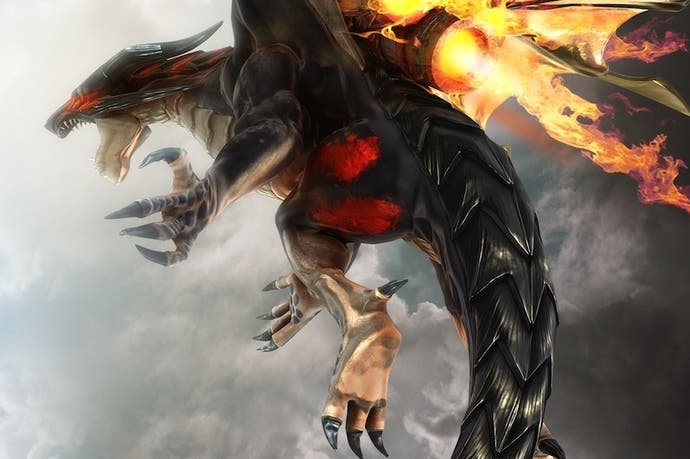Divinity: Dragon Commander review
Winging it.
Divinity: Dragon Commander doesn't possess much nuance, but what it lacks in subtlety it makes up for in... well, everything. The sheer quantity of ideas that have been shoehorned into this game is amazing. It's the party punch you once made where you poured in everything you could think of and it actually tasted pretty good. This is a game in which you can make a half-dragon with a jetpack marry a living skeleton - and that's what you do when the action isn't happening.
Here's my situation right now: I live in a giant steampunk ship floating amongst the clouds, from which I direct fantasy armies as I try to reconquer my late father's realm. One room holds my wife, a giant lizard lawyer whom I married for her cunning and, I admit, for political purposes, while another holds my team of fuming advisers. The conservative, religious corpse who represents the realm's undead is angry at me because I broke with tradition and ruled in favour of gay marriage. The elven representative is angry at me because I didn't grant special favours to an elf noble. The dwarf is angry at me because he's just always angry at me and, between you and me, is a massive dick.
Down in the engine room, an imp has just invented zeppelins, while in my personal chambers my wizardly friend has discovered a way that I can burp acid at my enemies. Behind him stands a glowing portal through which I can step if I want to make particularly nasty deals with what might as well be the devil itself. The morning paper arrives and tells me I'm crap at my job, but I don't have time to read it because I need to order a dozen giant tripods to attack an enemy base.
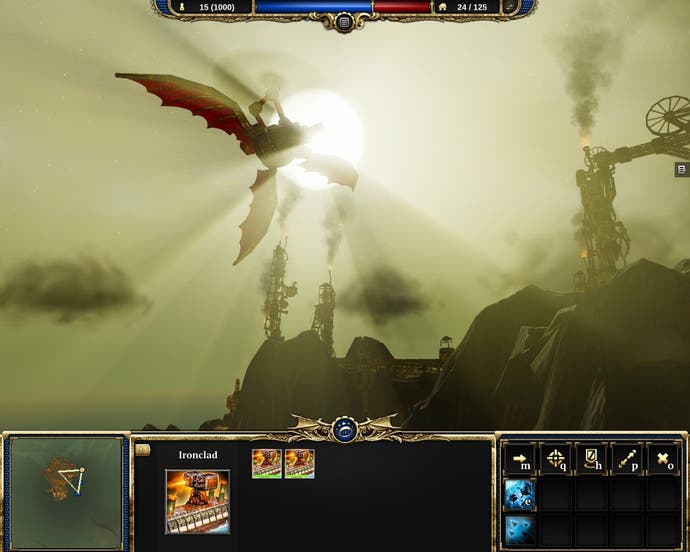
Dragon Commander is not a finely-crafted work of art, it's splashes of paint hurled at a canvas - but it's nothing if not colourful
All that is about 10 minutes of play in Dragon Commander, and that may already give you an idea as to whether this is the sort of game for you. You may sip this particular punch and decide it's too sweet, that there's no sophistication to its flavour, and I wouldn't blame you. For all that it tries to do, this game isn't particularly smart or subtle. It's not a finely-crafted work of art, it's splashes of paint hurled at a canvas - but it's nothing if not colourful.
Stirred into Dragon Commander's punch are one part real-time strategy, one part turn-based strategy, a spoonful of politics and a dash of third-person action. Like many of its strategy peers, it has you lording over a map of the realm, moving your armies and navies from territory to territory. Then, when battle breaks out, you have the chance to take command from the eye-in-the-sky perspective typical of real-time strategy. The thing is, you can also join the fight. Because you're a half-dragon. With a jetpack.
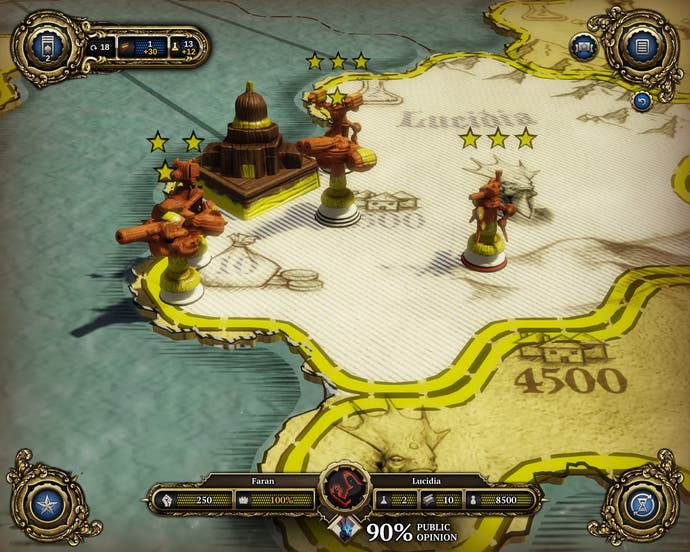
At the press of a button you can hop into these battles as a scaly strike fighter, appearing out of nowhere and suddenly blasting away at the enemy with a ferocity that can turn the tide of battle. Your dragon can easily take out a dozen enemy units without flinching and the only disadvantage you suffer is a lack of awareness of what's happening elsewhere on the map. Though it feels at odds with the rest of the experience, this does add a spark of excitement to what's otherwise a rather humdrum affair, with battles relying more on attrition than tactical trickery. That said, I should add that a host of unusual technologies unlock all sorts of new abilities, from cloaking devices to the chance to turn your enemies into giant ladybirds.
The AI is pretty rudimentary and, while it sometimes performs a rare pincer movement, it's mostly concerned with producing a lot of units and driving straight towards either you or the next empty construction site. Each map features several predetermined positions where buildings can be constructed, while there are no resources to be gathered, only a manpower value which gradually decreases as the battle rages on. This means fighting is focused around key construction sites and, once the majority of these are in your hands, momentum wins the day. It's rarely dramatic and often slow.
Fortunately, there's more fun to be had playing on the campaign map, nudging armies from region to region and occasionally playing cards that represent special abilities granted by advisers or from your holdings. These might sabotage your enemy's economy or protect a region from attack this turn. Again, the AI here could do with more smarts, as it's not always aggressive enough and sometimes enters into battles it can't possibly win, but there's still a lot of satisfaction to be had painting the world your favourite colour and delegating battles to your generals. Still, sometimes you'll have to take direct control, as being a giant half-dragon really does make a difference.
When the serious discussions begin, Dragon Commander can't quite escape the ostentatious fantasy that it's selling you the rest of the time
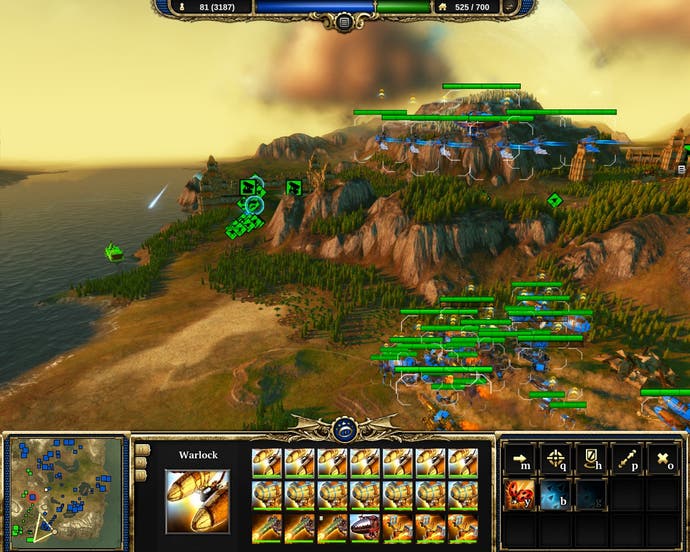
Between each turn, you have the chance to wander the rooms of your ship, where advisers and generals mingle, presenting policy decisions that require your ruling. The decisions you make here are reflected in the rest of the game, as your rulings will alter your economy, affect the morale of your people and change your standing with the races that occupy the game's different regions.
These conversations with your comrades are also where the true heart of Dragon Commander lies, because they're your connection to the outside world; this is developer Larian's attempt to build a picture of the realm that exists beyond all the battlefields you see. Your advisers talk about their personal lives, their loves and how the war is affecting their people. These chats aren't so much conversation trees as conversation saplings, but they are conspicuous in their abundance and exuberance.
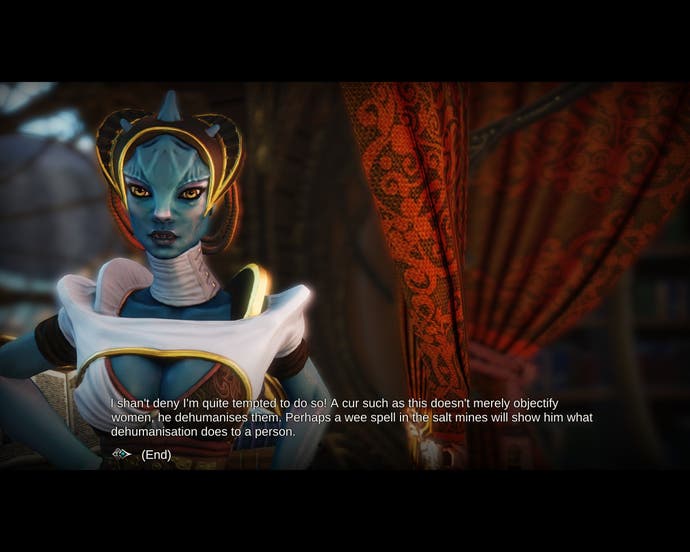
All the themes raised are contemporary, from religious education to gay rights and feminism, and though I'm delighted to see these represented in a video game, they're not given the most dexterous depictions. When the serious discussions begin, Dragon Commander can't quite escape the ostentatious fantasy that it's selling you the rest of the time. Monologues on equal pay or gay marriage are more caricatured than considered, while heaving bosoms are never far away and inevitably undermine any claims to maturity the game might make, even though it really does mean well.
Everything in Dragon Commander (aside from these bosoms) is slightly underdeveloped. Still, what Larian has created is a coherent and idiosyncratic game that's remarkably enjoyable if you're a strategy fan who wants something less po-faced than the Total War series. None of the individual elements is particularly good but, together, they form something that's a lot more entertaining than you might expect; perhaps more entertaining than it deserves to be. Avoid the boring battles and instead focus on grand strategy and gay rights, and you'll find fun, imperfection, character, lovely visuals and occasional plot surprises in this ridiculous and very colourful game.
